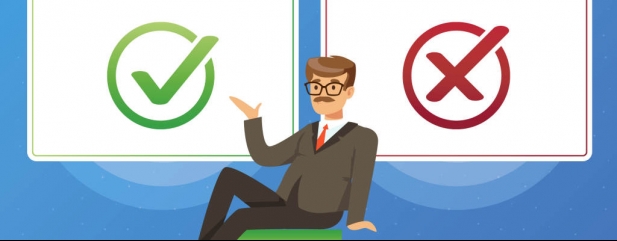Archived article
Please note that tax, investment, pension and ISA rules can change and the information and any views contained in this article may now be inaccurate.
Can you help me with the ‘dos’ and ‘don’ts’ of drawdown?

I’m 65, active and enjoy my flexibility. Because of that I’m fairly sure I don’t want to buy an annuity. Could you offer some basic ‘dos’ and ‘don’ts’ for anyone wanting to stay invested in drawdown?
Moira
Tom Selby, AJ Bell Senior Analyst says:
While buying an annuity is a one-and-done decision – with your income guaranteed for life – drawdown offers more flexibility. You can choose to take withdrawals as and when you want to suit your needs and lifestyle.
This flexibility means you need to take a more active, engaged role managing your pension in retirement.
The below list of ‘dos’ and ‘don’ts’ is by no means exhaustive, but hopefully gives you a few useful things to consider.
DRAWDOWN DOS
Review your withdrawals and investment strategy regularly: Spend a bit of time thinking about how much income you will need to fund your retirement and how you plan to generate that income from your investments and what income tax might apply. Make sure you review your investments and withdrawal strategy regularly – at least once a year – to make sure your plans remain on track.
Have a cash pot to pay your income: It makes sense to have a big enough cash fund to pay yourself an income – anywhere between 12 and 24 months’ income is probably sensible. This should provide a buffer so you can avoid selling investments at the wrong time (i.e. when markets are tumbling).
Keep your charges as low as possible: Whatever you do, make sure you keep your costs and charges as low as possible. Even small differences in the amount you pay to a platform or investment company can wipe thousands of pounds off your retirement income over the long term.
Consider speaking to a regulated financial adviser: Managing your retirement fund in drawdown requires you to consider and manage a variety of risks including longevity risk, inflation risk and investment risk. While some people might feel confident going it alone, a good financial adviser can help you make the most of your money and avoid falling down a tax pitfall. You will have to pay for their services, but this is often excellent value for money over the long term.
DRAWDOWN DON’TS
Take your entire pension as soon as you can: It is all too common for savers to whip all of their pension out at the earliest possible opportunity. This behaviour often comes from a distrust of pensions or simply a desire to get the money as quickly as possible. If you do this you risk handing more money to the taxman than is necessary, as 75% of your withdrawals will be taxed as income (with the other 25% tax-free). This means you could pay income up to 45% on a large one-off withdrawal depending on your other income. What’s more, you will be taking the money out of a tax-efficient environment and trigger the money purchase annual allowance (MPAA), reducing the amount you can potentially save in a pension from £40,000 a year to £4,000 a year.
Withdraw too much, too soon: One of the biggest mistakes people in retirement can make is taking out too much, too early from their pension pot. You can access your pension from age 55 at the moment, although this is due to rise to 57 from 2028. However, just because you can do something doesn’t mean you should. If you start taking a retirement income in your 50s then that might need to last for 40 years or more. While in some cases this might be doable, you will need to live off less or risk running out of money in retirement.
Stick your head in the sand: For drawdown to work most effectively you need to engage and be prepared to adjust your plans if circumstances change. If your investments hit the skids – something many people experienced in 2020 – then a previously sustainable retirement income strategy could become unsustainable. Anyone who just ploughs on regardless will run the risk of exhausting their pot sooner than they originally planned.
As a very rough guide, a healthy 65-year-old should be able to withdraw between 3% and 4% of their fund and be confident it will last throughout their retirement – although this figure will vary depending on the performance of your investments.
Invest all your pension in cash over the long-term: With inflation returning to the economy, holding too much cash over the long-term comes with the risk of your spending power being eroded away by rising prices. While having some cash might be necessary, investing everything in cash – or even worse withdrawing your money from a pension, paying unnecessary tax and then shoving the money in a bank account paying little or no interest – risks causing significant damage over the course of your retirement. If you don’t want to take any investment risk, drawdown probably isn’t for you.
DO YOU HAVE A QUESTION ON RETIREMENT ISSUES?
Send an email to editorial@sharesmagazine.co.uk with the words ‘Retirement question’ in the subject line. We’ll do our best to respond in a future edition of Shares.
Please note, we only provide information and we do not provide financial advice. If you’re unsure please consult a suitably qualified financial adviser. We cannot comment on individual investment portfolios.
Important information:
These articles are provided by Shares magazine which is published by AJ Bell Media, a part of AJ Bell. Shares is not written by AJ Bell.
Shares is provided for your general information and use and is not a personal recommendation to invest. It is not intended to be relied upon by you in making or not making any investment decisions. The investments referred to in these articles will not be suitable for all investors. If in doubt please seek appropriate independent financial advice.
Investors acting on the information in these articles do so at their own risk and AJ Bell Media and its staff do not accept liability for losses suffered by investors as a result of their investment decisions.

 magazine
magazine








